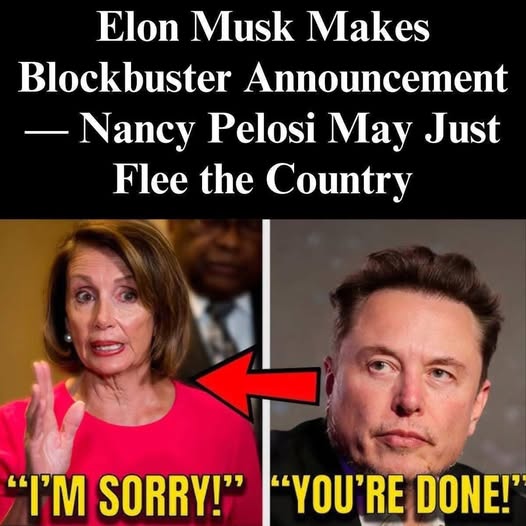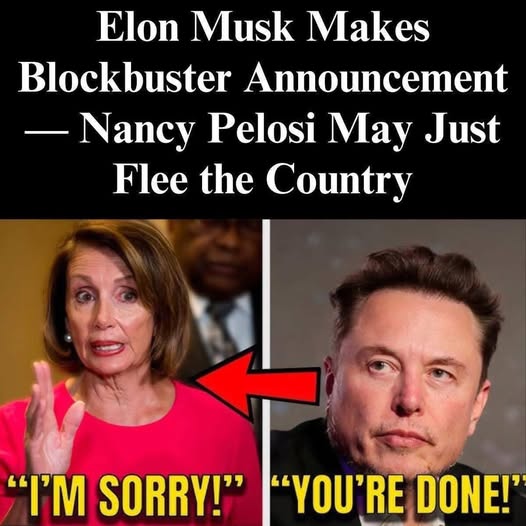Elon Musk Raises Questions About Congressional Wealth: Calls for Transparency
A recent appearance by tech entrepreneur Elon Musk has reignited public debate over how some members of Congress have accumulated significant wealth during their time in office. Speaking in response to a question about financial transparency, Musk shared concerns over what he described as a “circuitous” flow of taxpayer money through government agencies and non-governmental organizations (NGOs).
A Closer Look at the Concern
Musk, who leads Tesla, SpaceX, and Starlink, suggested that public funds sometimes pass through several organizations in ways that make oversight difficult. “There is a massive amount of corruption, but it is circuitous,” Musk said. He alleged that in some cases, money sent overseas might eventually find its way back into the hands of individuals in positions of influence in the U.S., though he provided no direct evidence of wrongdoing.
His comments came in the context of broader scrutiny over the personal wealth of lawmakers, many of whom have seen their net worth rise substantially during their time in office.

Congressional Wealth and Public Trust
According to publicly available financial disclosures, a number of long-serving members of Congress have reached millionaire or multi-millionaire status. For example, former Speaker Nancy Pelosi and her husband have reported substantial investments in leading tech companies. Similarly, Senator Rick Scott of Florida, a former businessman, is among the wealthiest U.S. lawmakers.
While some members entered politics already wealthy, others have grown their assets significantly while in office—raising questions from voters about the potential for conflicts of interest.
Stock Trading Debate in Congress
Missouri Senator Josh Hawley has pushed for legislation that would prevent members of Congress and their immediate families from trading individual stocks. He argues that lawmakers often receive sensitive briefings that may not be available to the public—giving them an unfair advantage, even if it isn’t considered illegal.
“When members of Congress act on privileged information, even if it’s not technically insider trading, it undermines public trust,” Hawley said, adding that former President Trump supports the legislation as well.
Public Support for Reform
A 2023 nationwide survey found overwhelming bipartisan support for stock trading reform. Nearly 9 in 10 respondents—Democrats, Republicans, and Independents alike—said members of Congress and their household members should not be allowed to trade individual stocks. Many also extended that view to the president, vice president, and Supreme Court justices.
Despite strong public opinion, stock trading among elected officials remains common. Data from the Campaign Legal Center found that over 60% of new members of Congress in 2023 and 2024 reported owning both stocks and mutual funds.
Calls for Greater Oversight
Although no illegal activity has been confirmed in connection with congressional wealth, Musk’s remarks add to a growing chorus of voices demanding more transparency and stricter ethical standards for elected officials.
As conversations continue, lawmakers from both sides of the aisle may soon face increased pressure to adopt reforms that limit or fully ban individual stock trading while in office. In the meantime, watchdog groups and journalists continue to follow the money, asking how public service and personal profit can—and should—coexist.


